El Ten Eleven's Kristian Dunn: "I'm not even a guitar player, I'm a bass player. I'm faking my way through it!"
The post-rock duo's leader on how he builds a blockbuster bass sound, his expansive live rig and why Tautology ended up as a triple album
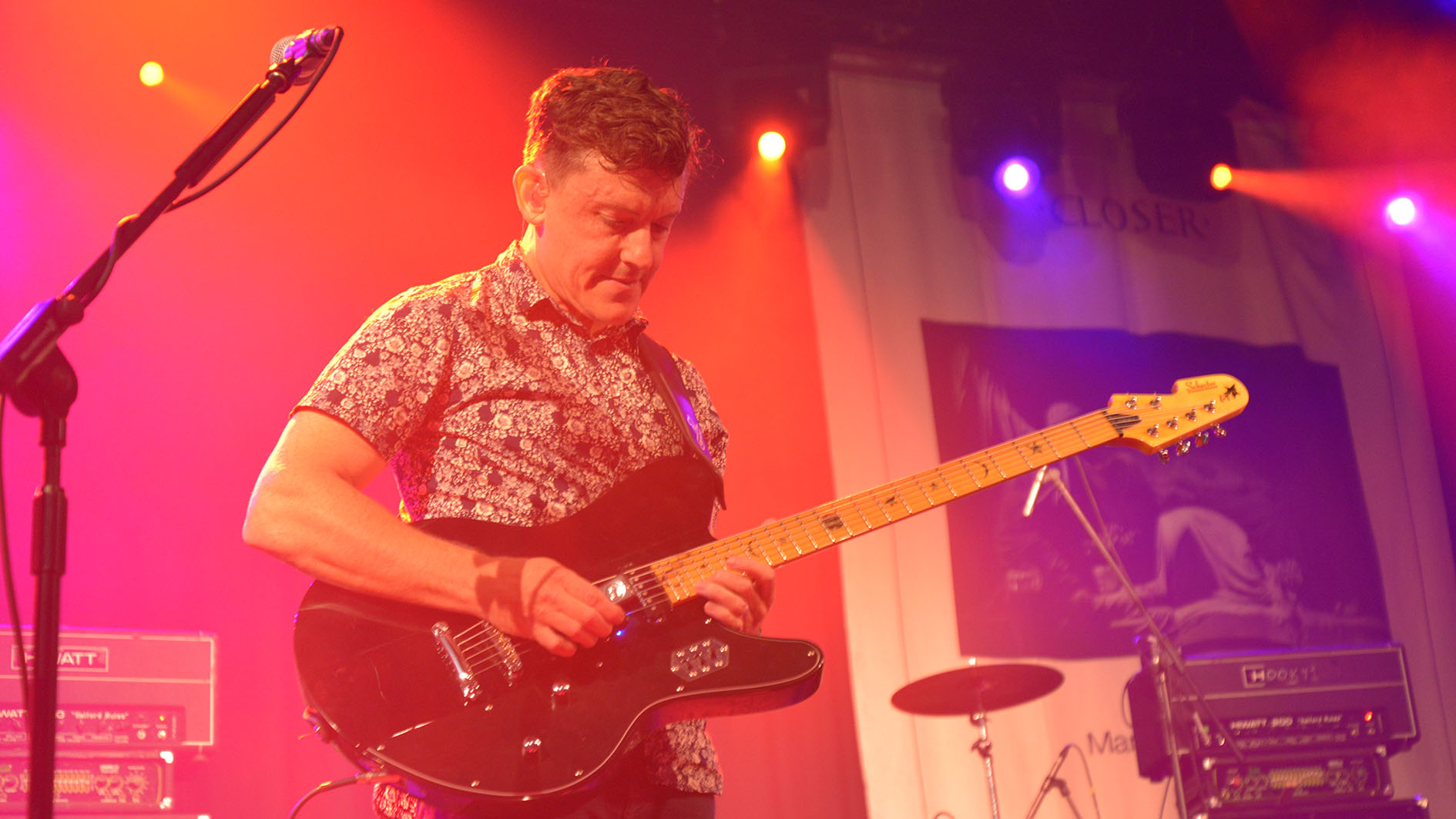
Instrumental indie-rockers El Ten Eleven embraced the technological possibilities of the mid-2000s. Using looping, they created expansive, rich compositions despite only being a two-piece. At the same time, they explored new DIY approaches to build their profile and release records.
In both of these regards they were successful - and influential. You only need to look at the number of two-pieces on the scene today to see the impact that they and bands like Giraffes? Giraffes! have had.
Named after the Lockheed L-1011 TriStar, El Ten Eleven's music is appropriately kinetic, though they've taken different paths across their discography. Primary songwriter Kristian Dunn has written and recorded using guitars, basses and a distinctive Carvin guitar-bass doubleneck - the latter becoming his live signature.
With 2018's Banker's Hill, the band hit a career best, but now, less than two years later, they're back, with a triple LP - Tautology. It's a powerful, dense, ambitious record, which traces the path of an individual through early life to old age.
We picked up the phone to Kristian to talk doublenecks, loopers and desert gigs, and everything in between.
In our heads, El Ten Eleven is an LA band, as you formed there, but that's not really true anymore, is it?
"We did, I lived there for ten years and the band was formed there, but about 10 years ago I moved here, to San Diego, for love. Tim, my drummer, still lives up there, but I just drive up for practice."
Get The Pick Newsletter
All the latest guitar news, interviews, lessons, reviews, deals and more, direct to your inbox!
That's a long drive! How often does that mean you guys practice?
"Not at all, lately. This new record, or records, y'know, it's three records and twenty-something songs. It was a lot of work, so we were kind of on a little break.
"I'd started doing side-projects and stuff, and we weren't planning on going on tour until September. Then the pandemic hit, and that shut down any ideas we had of getting together.
I think we're doing the best work we've ever done, and I'm 50, which makes no sense, and I can't explain it
"Now we're toying with the idea of getting together and practicing anyway because we both feel totally healthy and have gotten COVID tests that are negative. I'd be isolated all the way there as would he, and then we're isolated in our rehearsal space."
That distance makes the fact that your last record, Banker's Hill, came out in 2018 all the more surprising. How did you write and record a triple album so fast after that? It seems almost an impossible task.
"Yeah [big sigh]. In the rock world, it seems that generally speaking our favorite famous rock musicians tend to peak creatively y'know, when they're in their 20s, maybe their 30s, and then they go downhill and kind of become uninteresting, or their bands break up, or whatever.
"My - I hate to use this word, but - my 'journey' has been quite different from that, I think. I'm just now hitting my stride, as a writer, and as a player, and [with] El Ten Eleven specifically.
"I think we're doing the best work we've ever done, and I'm 50, which makes no sense, and I can't explain it. The only explanation that I have is that we've finally got a producer who's really good and fits with us really well. His name's Sonny DiPerri - he produced Banker's Hill, which was the first time we'd used a producer, and it was night-and-day from doing it ourselves.
"So then we worked with him on this new one, Tautology. He's kind of my muse. He'll give me suggestions, and I'm off and running. Thankfully the ideas have been just really coming fast. The well is kind of flowing over at the moment, thank the gods. Someday maybe it won't, and I'll be putting out one record every six years."
Was it always the intention that Tautology would be so sprawling?
"What's funny is we're putting out this triple record, but it's absolutely the opposite of what I wanted to do. I wanted to start just putting out EPs, y'know, start putting out shorter records more often, and somehow we ended up with a triple record, but whatever. I'm rolling with it."
It's also on Joyful Noise, which is something of a departure from your reputation for DIY...
"Part of it is the times in which we find ourselves. El Ten Eleven has been together coming up on 18 years. When we first started, record labels were still kind of a thing, but none of them were interested in us.
What's funny is we're putting out this triple record, but it's absolutely the opposite of what I wanted to do. I wanted to start just putting out EPs
"I'd come out of, I'd have to go back and count, but I think 10 record deals in other bands, major label deals or indie deals, and nothing ever really worked out, and we were entering into that thing in the mid-2000s where that DIY thing was a lot more possible.
"We thought, 'If no-one wants to sign us, then forget 'em, we'll just do it ourselves.' That worked, although it took a really long time to get established, but it did work. Then, we kind of felt, all these years later, in 2017-19 that we'd gone as far as we could on our own, so we were open to signing with a label, and Joyful Noise ended up being the perfect fit.
"The guy who runs it - Carl - totally understands us and is really co-operative with our crazy ideas. He signed us for one record, and I said after we'd signed the contract, 'Actually, I want to do three records.' He was like, 'Okay.' We did a limited color vinyl of the record and it sold out in like two days, or something... I mean, he's crushing it. So far being on this label has been fantastic."
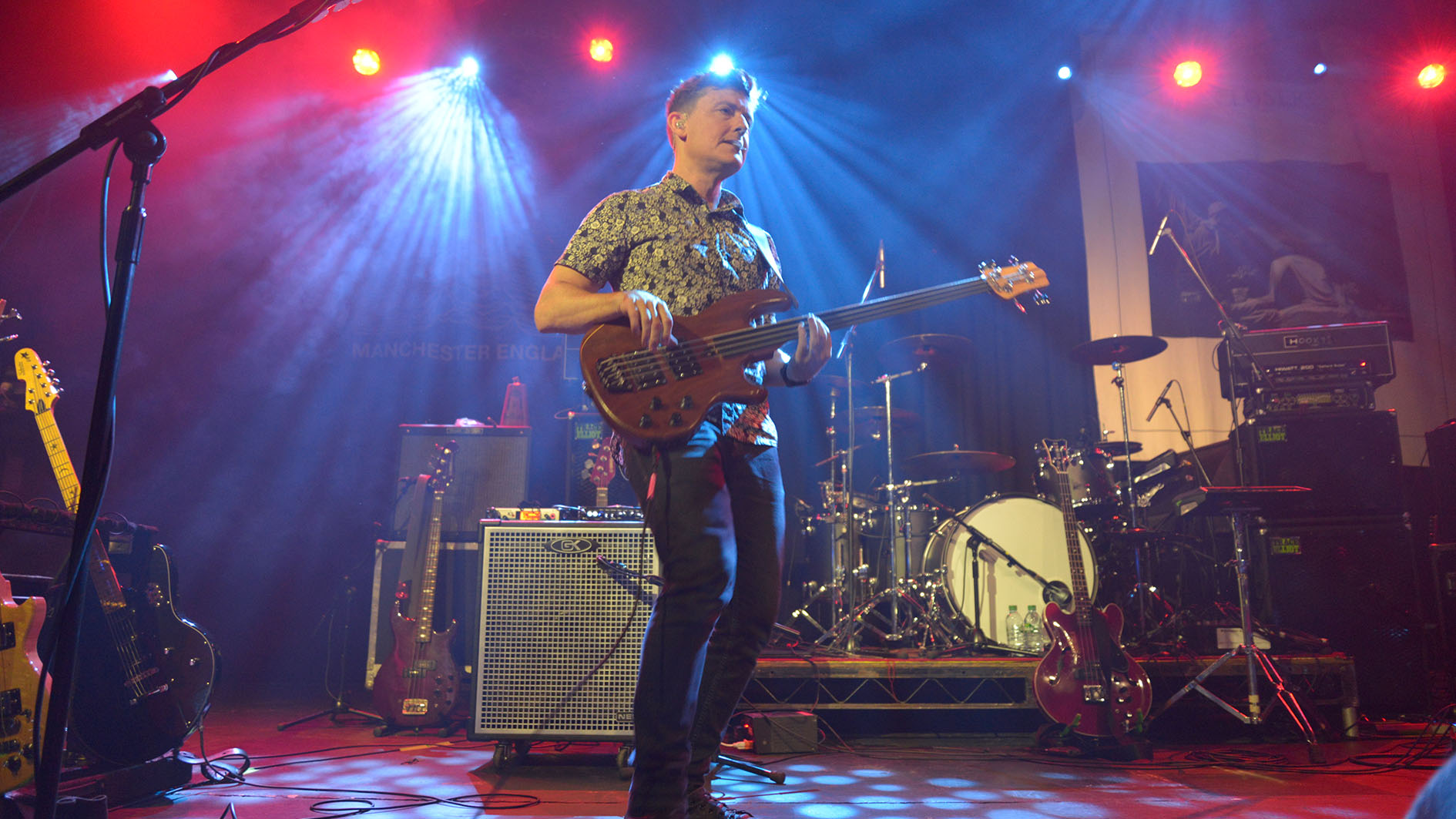
Do you think that the consistent, slow-burn approach is key to your success?
"It can work to our detriment. When Tautology comes out, I think we'll be at 13 records total or something, and for me personally, if I look back, there's about five that to me are worthy, or something. So we may have released too much material, but that was our way.
"For us, records were an excuse to tour... and out there touring is where we honed our songs and our chops and our songwriting, so for us it's been helpful to get us to this point where I'm actually happy with every album that we're putting out."
I guess it's natural to feel that you've progressed beyond your older material.
"[Right, but] what does that mean for somebody discovering El Ten Eleven? Well, if they love us, great, because there's a lot of material for them to get into, but if they hear quote-unquote the wrong song, from the wrong record, and judge us on that, then that's kind of painful for me to think about."
Have there been any other difficulties posed by doing this over such a long period?
People assume that I'm into really weird instrumental, experimental music and I'm not
"I think [our longevity] has hurt us in one other way, which is that very few bands bigger than us will take us on tour, which is bizarre, because we draw really well and there's only two of us, so you'd think we would be perfect, but I was talking to our manager about it and he said, 'Everybody's looking for the new next big thing that hasn't happened yet,' and we're so clearly not that, because we've been around so long and we're old news."
Although it's not your first concept record, Tautology is certainly your most ambitious. How did you go about writing it?
"People assume that I'm into really weird instrumental, experimental music and I'm not. I mean, to a certain extent - I listen to some of that stuff, but generally I listen to music that has vocals, and pop stuff, really.
"Okay, not pop as it's currently defined... but rock bands with choruses and verses. So when I write, I'm thinking that way, generally, but now and then I totally go outside that, because I can.
"In terms of the writing leading the concept or the concept leading the writing, it's usually the writing leading the concept. Like probably most musicians, I sit down with my bass in front of my laptop and try and come up with cool ideas... the ideas come first and then I start figuring out 'what they mean'. I always do find that they mean something and then they end up influencing the remainder of the writing."
Can you recall how that played out for Tautology?
"In this case, it's aging... that started occurring to me as I was writing a song that I thought was clearly about my grandmother-in-law, who had just died. Then I was writing a really aggressive song that ended up being on the first record, like With Report or something, and it reminded me of being a teenager.
"I then go, 'Okay, now I've got it - this first record is about being a teenager' and I've got this riff, does it sound like being a teenager? No? Well, it's a cool riff, but maybe it's time to put it on the shelf."
At what point to you get Sonny or Tim involved?
"It happens at the same time - I'll send ideas to Tim and Sonny... we'll get it settled a little bit and then Tim and I will get together in the practice room and hash it out. Things inevitably change a lot there, or we'll be improvising in the practice space and things will pop up. We're always recording ready to catch that moment of 'oh that was cool! What was that?' I'll then take that home and try and refine it."
I am not even a guitar player, I'm a bass player. I'm faking my way through it. In fact, I haven't used a guitar on a record in years
You see yourself as a bassist first and foremost, and a guitarist second, is that right?
"I am not even a guitar player, I'm a bass player. I'm faking my way through it. In fact, I haven't used a guitar on a record in years. I think the last time I used a guitar on a record was on Transitions, maybe For Emily. Banker's Hill and Tautology there's no guitar, it's all bass. A lot of the sounds that people would - totally understandably - think is a keyboard or guitar is bass and tons of effects."
I guess a lot of people see the doubleneck and make assumptions.
"Oh yeah, everybody's curious about it, and I'm happy to talk about it. I still use it on tour to play the older stuff. I literally can't play a lot of the older stuff without it, because it's actual guitar parts, and I'm playing the guitar and bass and the same time. I've worked out some techniques to play bass and guitar [on the doubleneck] simultaneously, but I can't do that when I'm just wearing a bass."
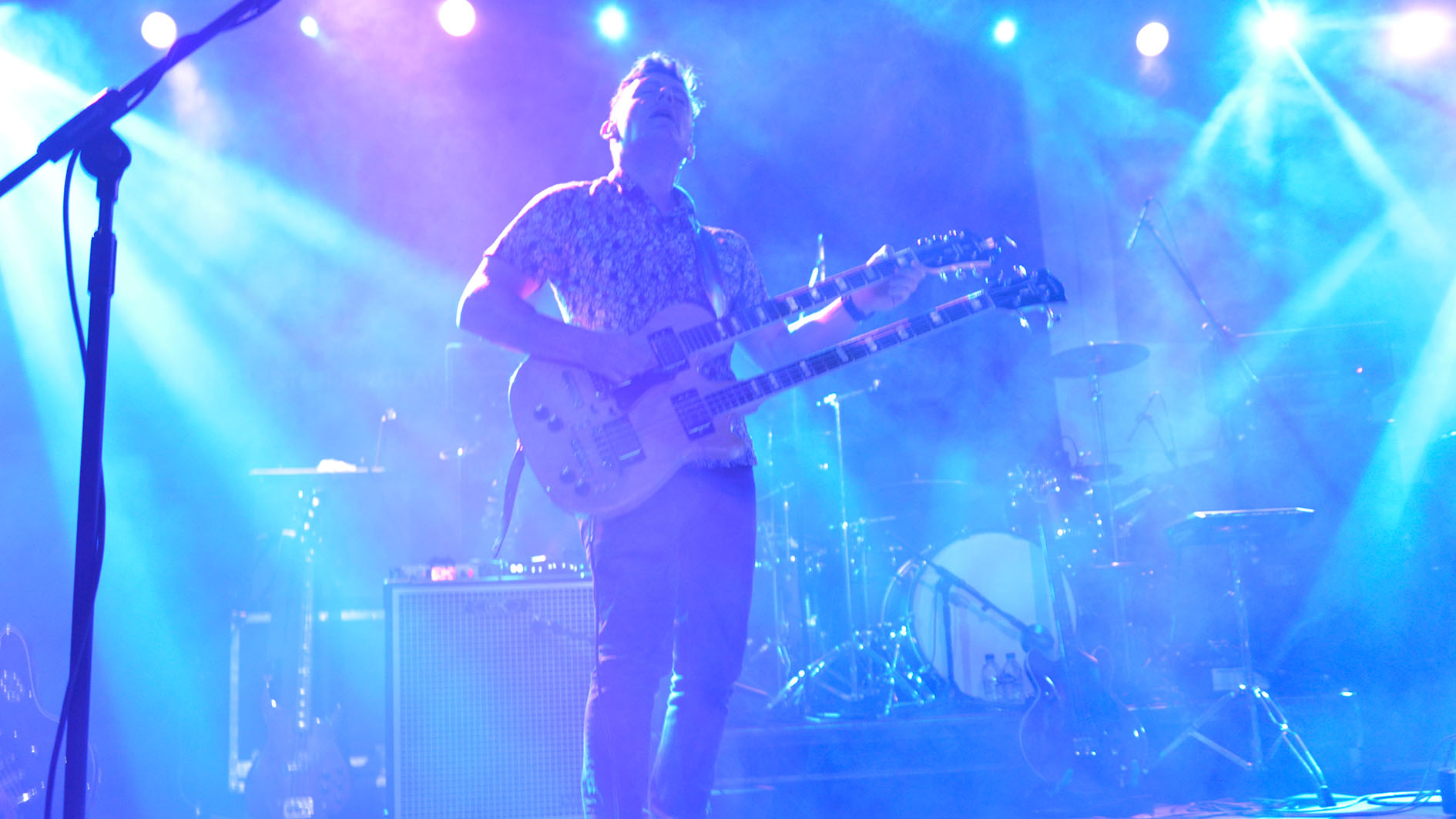
What do you think has led you to gravitate away from using the guitar at all?
"Melodically and technically I couldn't work out how to not have the doubleneck and the guitar, and then I discovered [the Shergold Marathon bass VI]. We were playing some shows with Peter Hook [from Joy Division and New Order]... we got to play with them a bunch, and became friendly.
"His son is a bass player as well, and we became really good friends. They turned me on to the Shergold Marathon bass VI, which they were using. I had this Schecter Robert Smith [Ultra Cure] bass VI, and I love the tone of it, but the string spacing is so small, you can tell they designed it for guitar players that want to play bass.
"The Shergold feels like a bass, so I thought 'I've gotta get one of these' - the problem is there's only been a hundred ever made. We were on tour in England and Jack - that's Peter's son - texted me and said 'dude, there's a Shergold for sale in England, in such-and-such a town'... I contacted the guy and talked him into letting me get it off him directly."
Two of the most important things that showed up on this record aren't pedals, actually
Is there any other kit that was key on this record?
"I happen to be sitting where I do all this, my basses are here, my amps are here, my pedals, my computer. I have a notebook from the recording because I have to relearn how to play this stuff because we're going to do a concert with no audience, probably out in the desert, film it, and put it up on the internet, and I'm [currently] having to figure out how to get these tones and how to play this stuff.
"Two of the most important things that showed up on this record aren't pedals, actually. The Bricasti [Design Model 7] reverb unit, which I'd never heard of before, but is absolutely the best reverb I've ever heard - that's a rackmount reverb - and an old [Eventide] H3500 for that, I'd guess you'd call it reverb, but that kinda Brian Eno more atmospheric thing."
How about pedals?
"One of the distortion pedals that we used I was really surprised by, and I love - I think I might need to buy one - was [an original '80s] Marshall Guv'nor."
That's a nice distortion pedal.
"I really loved it so much. [Sigh] Part of me is going like, dude, you really need another pedal?"
Haha, the struggle is real. The rest of the kit was pretty much just your live rig?
"Yeah, that's right. So my main pitch shifter is the Digitech Bass Whammy. It's fantastic, and that's another company that's been really, really nice to me. Then, because I actually need more than one live, there's a pitch-shifter in the Line 6 M9 stompbox modeler.
"I use that sometimes out of necessity. I ended up getting the M9 because I was trying to consolidate my 'board, rather than having pedals everywhere. I was working with Robert Bradshaw to customize my pedalboard because I was doing too much tap-dancing... so he built me a custom pedalboard with a MIDI controller, and he recommended the M9.
"He said, 'You know, with one of these you could have distortion, delay, chorus, all turn on simultaneously.' I took his home to try... and live, it sounds pretty darn good."
Looping's also pretty key to your sound. What do you use for that?
Music has an ability to transform people more easily I think than just about anything else that I can think of
"I'm using the Boomerang looping pedals because they're the best. I've been through a lot, I mean, this is kind of horrible but I get looping pedals for free, and have, from some other companies, and I don't use them. I have to pay for the Boomerangs, but I use those, because they're that much better.
"They're really accurate and hold up really well on the road, and a lot of other pedals don't. If you're on the road for a month, things have the tendency to get beaten up and stop working."
Final question - what do you love about music?
"I love the way that it transforms me and changes my mood, more effortlessly than probably anything else in my life, other than maybe a stranger just walking up and punching me in the face. Music has an ability to transform people more easily I think than just about anything else that I can think of.
"Drugs, I suppose, but it's probably even easier than that, and that's pretty phenomenal. I'm grateful that I get to make music that at least for some people is moving, and hopefully changes their perspective and their mood and their reality - at least temporarily, and hopefully positively - and that's kind of amazing."
Tautology is out on September 18 via Joyful Noise Recordings.
Alex Lynham is a gear obsessive who's been collecting and building modern and vintage equipment since he got his first Saturday job. Besides reviewing countless pedals for Total Guitar, he's written guides on how to build your first pedal, how to build a tube amp from a kit, and briefly went viral when he released a glitch delay pedal, the Atom Smasher.
“I was playing stuff I don’t think James Brown understood. He told me, ‘You have to play the one – you’re playing too much’”: Six years after he quit touring, Bootsy Collins reflects on James Brown and George Clinton, and what he gets out of playing today
“When I first heard his voice in my headphones, there was that moment of, ‘My God! I’m recording with David Bowie!’” Bassist Tim Lefebvre on the making of David Bowie's Lazarus
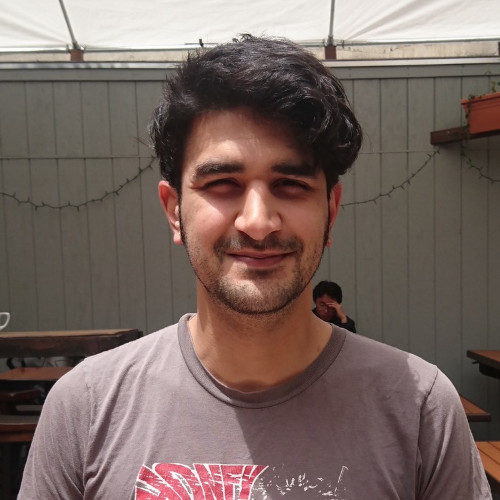
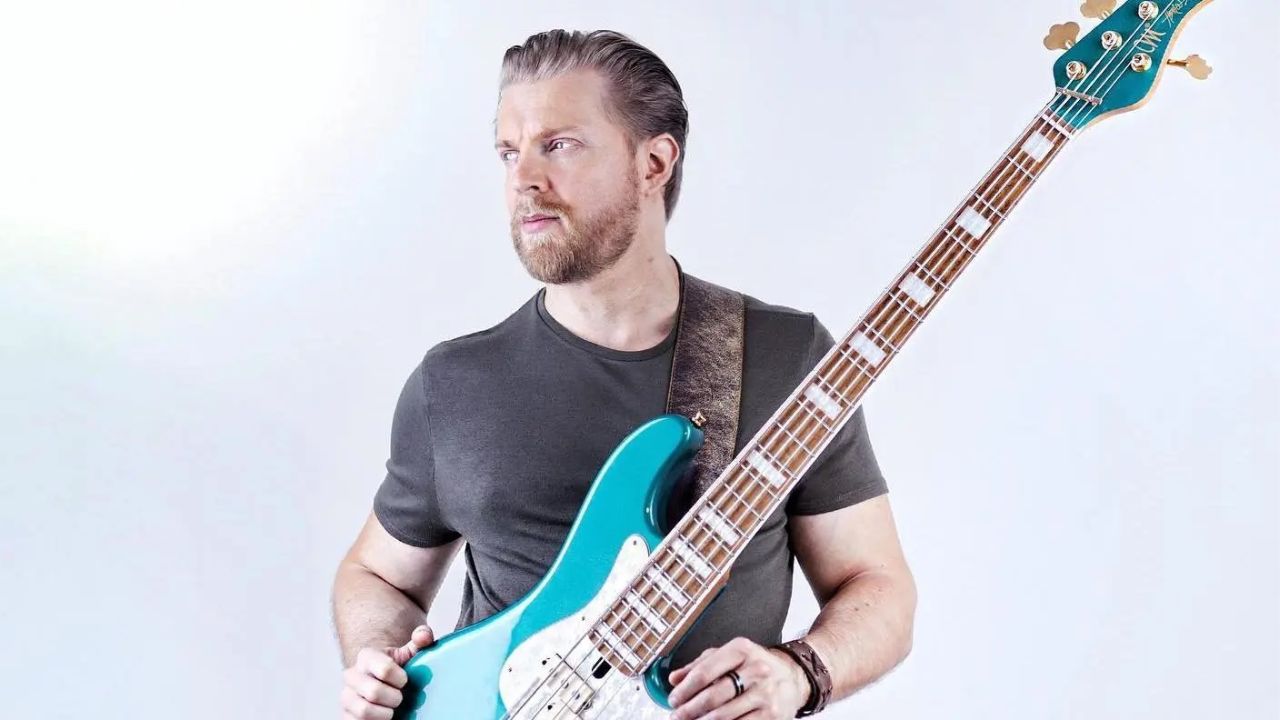







![[from left] George Harrison with his Gretsch Country Gentleman, Norman Harris of Norman's Rare Guitars holds a gold-top Les Paul, John Fogerty with his legendary 1969 Rickenbacker](https://cdn.mos.cms.futurecdn.net/TuH3nuhn9etqjdn5sy4ntW.jpg)
